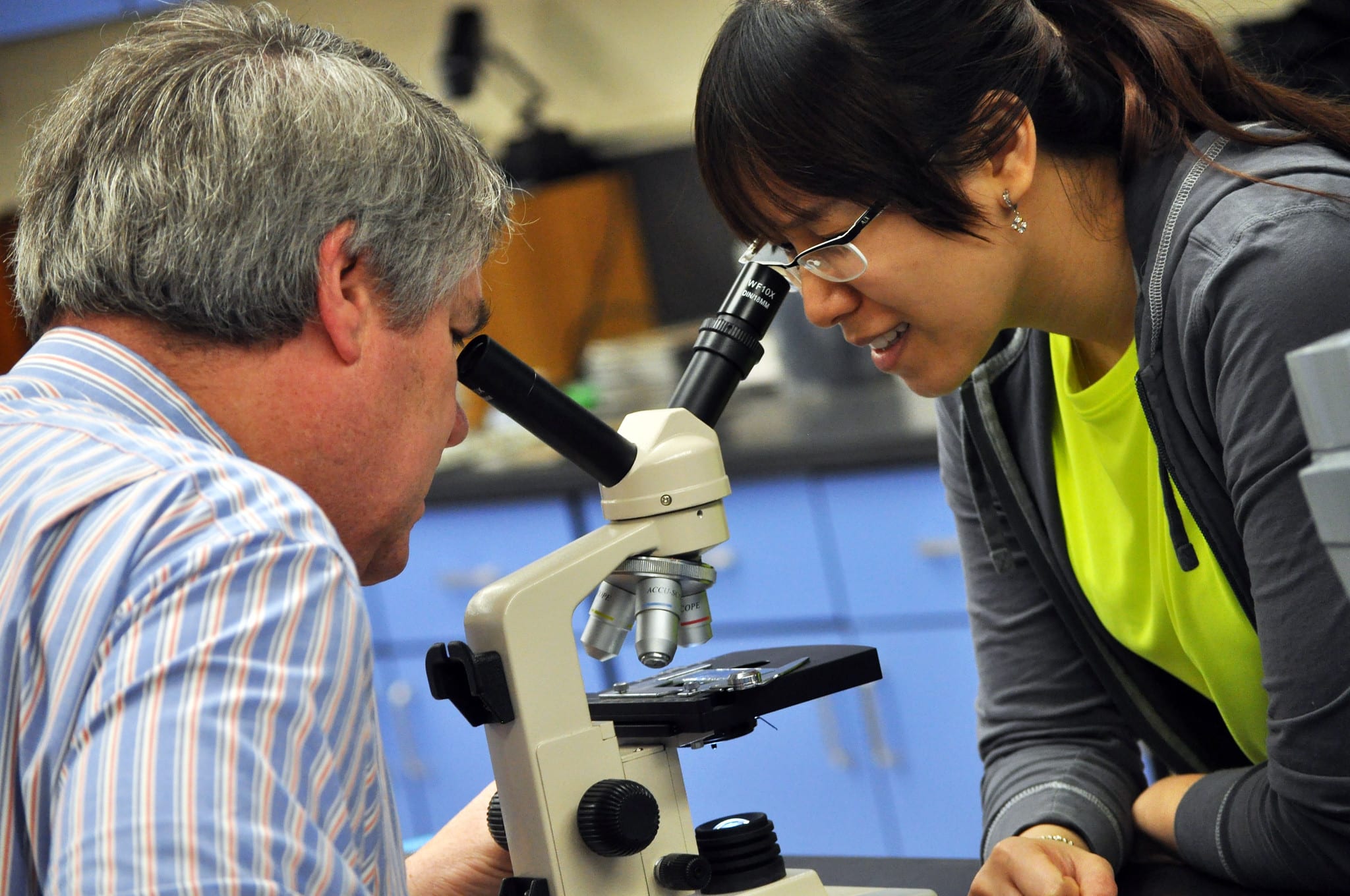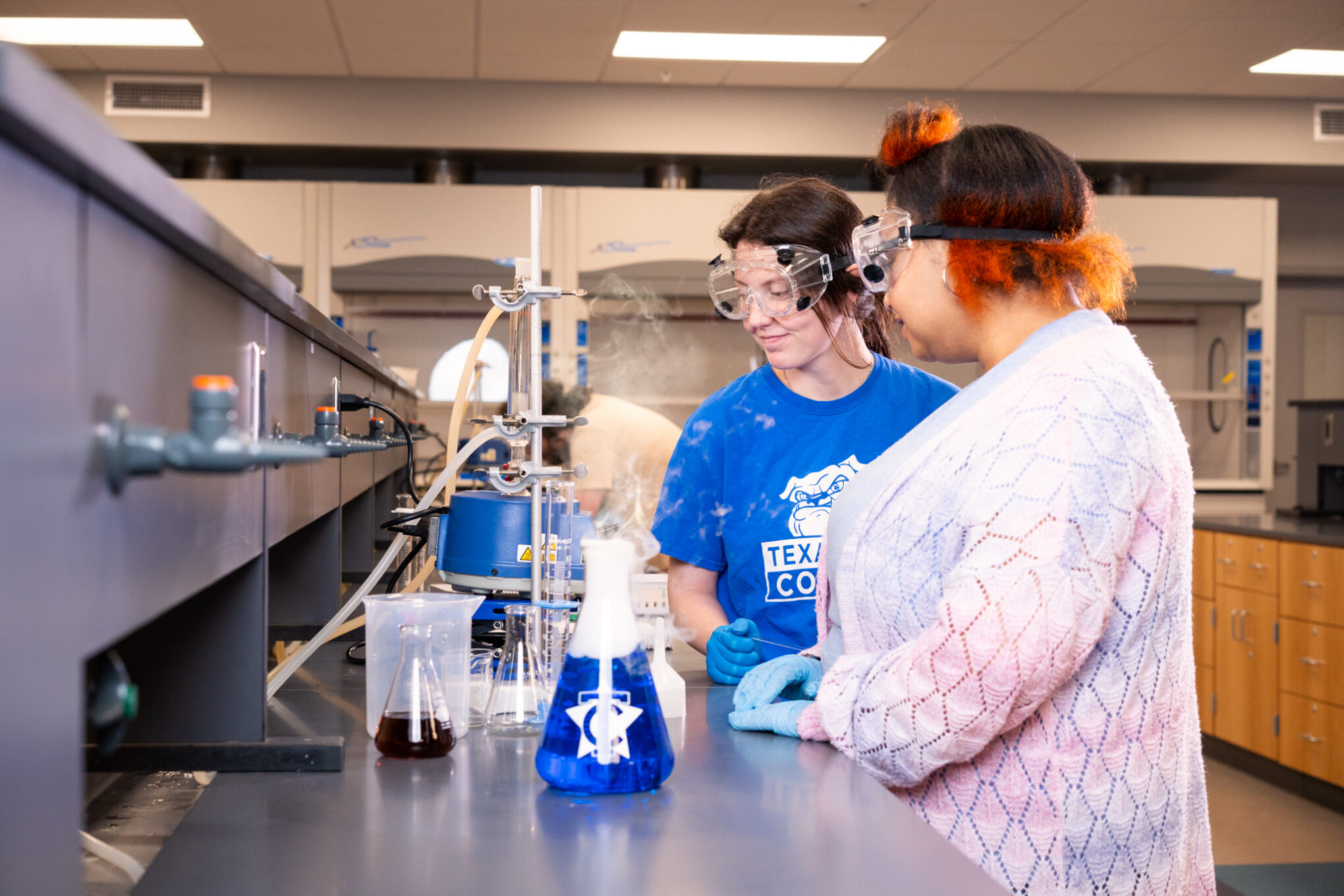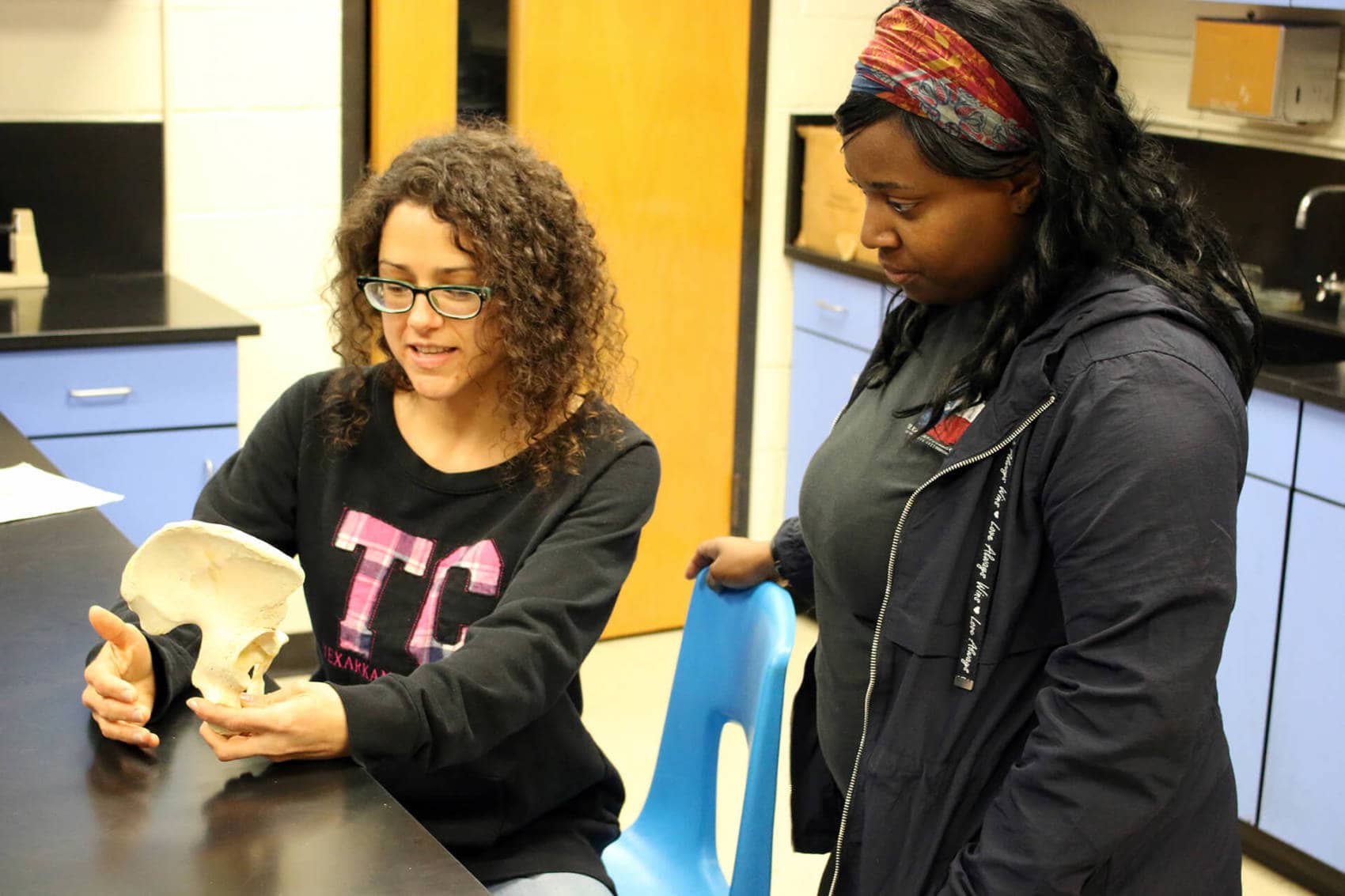Biology Degree
A biology degree from Texarkana College provides an excellent understanding and skill set needed to pursue advanced study in the life sciences.

On This Page
What to Know at a Glance
Duration
2 year associate degree
Delivery
A blend of face-to-face and online; Face-to-face
Scheduling Options
Full-time; Part-time; Day classes; Night classes
Where it is offered
Main Campus, #6 on the campus map
About Our Biology Degree
The A.S. Biology degree program is designed to provide the student with a firm understanding of the fundamentals of the life sciences and how it is practiced in order to prepare the student for a wide variety of specialized career fields in education, industry and academia.
Biology for Science Majors Lecture and Lab 1
An integrated approach to cell and molecular biology with emphasis on biological chemistry, cell structure and function, genetics and evolutionary theory.
Anatomy & Physiology I
Study of the gross and microscopic anatomy and physiology of cells, tissues, integument, muscular-skeletal, and nervous systems.
- Critical thinking
- Teamwork
- Communication
- Empirical & quantitative reasoning
- Technical reasoning
- Technical proficiency
- Numeracy
- Organization
- Self-discipline
- Time management
- Leadership
Possible Careers and Salaries
Biologist
$78,464
Zoologists and Wildlife Biologists
$60,791
Biology Educator
$50,839
Geneticists
$78,464
General Practitioner
$244,663
Tuition Costs
Approximate total program cost for full-time in-district (Bowie County residents) is $6,110.
Program Contacts


Contact Texarkana College to Get Started
Let’s talk about getting started with Texarkana College.
View Related Programs
More STEM Programs
Pre-Health Programs

